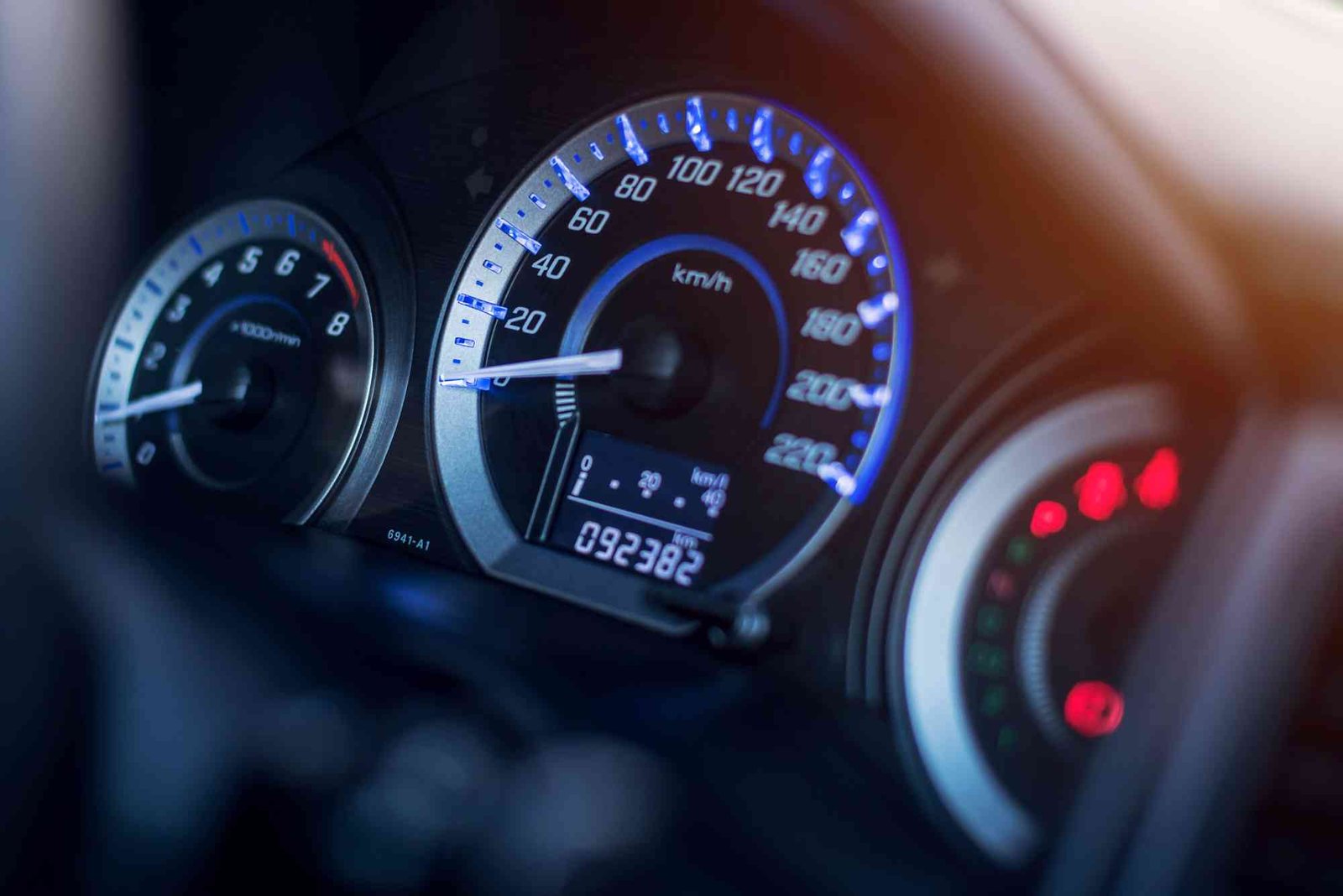Introduction
When it comes to buying, maintaining, or selling a car, the term car mileage often comes up. Yet, many people remain unclear about its true significance. So, what car mileage really means goes beyond simply counting miles on an odometer. Understanding it can influence your vehicle’s performance, fuel efficiency, and long-term value. In this article, we will break down everything you need to know about car mileage, its factors, and how to make informed decisions as a car owner.
Understanding Car Mileage
Car mileage refers to the distance a car can travel on a specific amount of fuel. It is commonly expressed as miles per gallon (MPG) or kilometers per liter (km/l). Knowing your car’s mileage helps assess fuel efficiency, maintenance needs, and overall operational costs.
What Does A Car Mileage Mean in Practical Terms
In practical terms, what does a car mileage mean for everyday drivers? It tells you how far your car can go before needing fuel. Higher mileage often suggests better fuel efficiency, which reduces your monthly fuel expenses. Conversely, lower mileage may indicate higher fuel consumption, possibly hinting at engine issues or inefficiency.
Understanding mileage also affects resale value. Cars with high mileage may depreciate faster, while those with lower mileage often fetch better prices in the used-car market. It’s essential to differentiate between highway mileage and city mileage, as both can vary significantly due to driving conditions.
Types of Car Mileage
There are generally two types of car mileage:
Highway Mileage
Highway mileage measures the fuel efficiency when driving at consistent speeds, usually over long distances. Cars often achieve better mileage on highways due to minimal stops, steady speed, and lower engine strain.
City Mileage
City mileage refers to fuel efficiency in stop-and-go traffic. Frequent braking, idling, and acceleration reduce efficiency, resulting in lower mileage compared to highway driving.
Factors Affecting Car Mileage
Several factors can influence what car mileage really means and how it is calculated. These factors include driving habits, vehicle condition, fuel quality, and environmental conditions.
Driving Habits
Aggressive driving, such as rapid acceleration and hard braking, can significantly reduce mileage. Maintaining a steady speed and anticipating traffic changes improves fuel efficiency. Using cruise control on highways is another effective way to maximize mileage.
Vehicle Maintenance
Proper maintenance is crucial for optimal mileage. Regular oil changes, tire rotations, and air filter replacements ensure the engine runs efficiently. Worn spark plugs or clogged filters can reduce mileage and strain the vehicle.
Load and Weight
Carrying excessive weight or towing heavy loads decreases mileage. Every extra kilogram requires additional fuel to move the vehicle, so reducing unnecessary load can enhance efficiency.
Fuel Quality
Using low-quality fuel may hinder combustion efficiency, leading to reduced mileage. High-quality fuel burns cleaner, ensuring better performance and longer engine life.
Environmental Conditions
Extreme weather, rough terrain, or frequent stop-and-go traffic can reduce mileage. Cold temperatures make the engine work harder, while driving uphill increases fuel consumption.
How Car Mileage Impacts Costs
Understanding what car mileage really means can save money in the long run. Fuel efficiency directly affects how much you spend on gas. A car with higher mileage requires fewer fuel stops, saving money over time. Additionally, efficient cars produce fewer emissions, potentially reducing maintenance costs and environmental impact.
Fuel Efficiency vs. Engine Performance
It’s a common misconception that higher mileage always means a better-performing car. In reality, some engines sacrifice power for efficiency. Understanding your car’s specifications and fuel economy ratings ensures you strike the right balance between performance and savings.
Resale Value
Mileage affects a car’s resale value. Lower-mileage cars often attract higher prices, while high-mileage cars might be cheaper due to perceived wear and tear. Buyers often consider mileage alongside age, maintenance history, and overall condition.
Tips to Improve Car Mileage
Even if your car is already in good shape, there are practical ways to enhance what car mileage really means in daily driving.
Maintain Regular Servicing
Regular servicing ensures your engine, transmission, and other critical components function efficiently. Proper maintenance directly contributes to higher mileage.
Adopt Fuel-Efficient Driving
Avoid aggressive driving, sudden stops, and unnecessary idling. Smooth acceleration and braking, along with moderate speeds, can improve fuel efficiency.
Check Tire Pressure
Under-inflated tires increase rolling resistance, forcing the engine to work harder and reducing mileage. Keeping tires properly inflated improves efficiency and safety.
Reduce Unnecessary Weight
Remove unnecessary items from your car, especially heavy objects. Extra weight reduces fuel economy and puts additional strain on the engine.
Use Quality Fuel
Opt for high-quality fuel from trusted stations. Poor fuel quality can lead to inefficient combustion and engine deposits, lowering overall mileage.
Common Misconceptions About Car Mileage
Many car owners misunderstand mileage readings, which can affect their perception of efficiency and costs.
Mileage Is the Only Measure of Efficiency
Mileage alone does not determine a car’s overall performance. Engine health, maintenance, and driving style all influence efficiency.
High Mileage Means a Bad Car
While high mileage indicates frequent use, it doesn’t necessarily mean poor quality. Well-maintained cars can perform efficiently even after accumulating many miles.
Manufacturer Ratings Are Always Accurate
Cars often achieve lower mileage in real-world conditions than stated in manufacturer ratings. City traffic, terrain, and weather conditions impact actual performance.
Frequently Asked Questions
How is car mileage calculated?
Car mileage is calculated by dividing the distance traveled by the fuel consumed. For example, if a car travels 300 miles using 10 gallons of fuel, its mileage is 30 MPG.
Does driving style affect mileage?
Yes. Aggressive driving, rapid acceleration, and frequent braking significantly reduce fuel efficiency. Smooth driving and maintaining moderate speeds improve mileage.
Can car mileage be improved over time?
Absolutely. Regular maintenance, using quality fuel, reducing weight, and adopting fuel-efficient driving habits can improve mileage over time.
Is highway mileage always better than city mileage?
Typically, yes. Highway driving is more consistent, with fewer stops and less idling, resulting in better fuel efficiency than city driving.
Does car mileage affect resale value?
Yes. Cars with lower mileage usually retain higher resale value, as buyers perceive them to have less wear and tear compared to high-mileage vehicles.
Understanding what car mileage really means is essential for every car owner. It affects fuel costs, engine health, and resale value. By maintaining your vehicle, adopting fuel-efficient driving habits, and making informed decisions, you can maximize mileage and reduce expenses.
To explore more insights on automobiles, check this Related Automobile article and stay updated with practical tips. If you’re keen to understand deeper technical specifications, Learn more about automotive innovations.
Proper knowledge of car mileage empowers you to make smarter choices, enhance efficiency, and save money. Start applying these tips today and take control of your car’s performance. For additional insights on vehicle maintenance and industry trends, visit our automobile section.
By understanding your car’s mileage and factors affecting it, you ensure longer-lasting performance, lower costs, and a smarter investment in your vehicle. Make every mile count!












